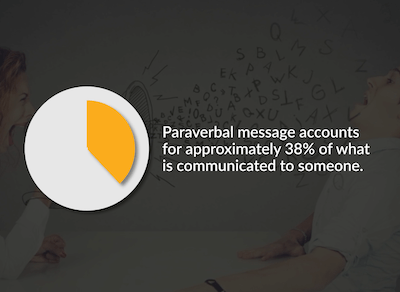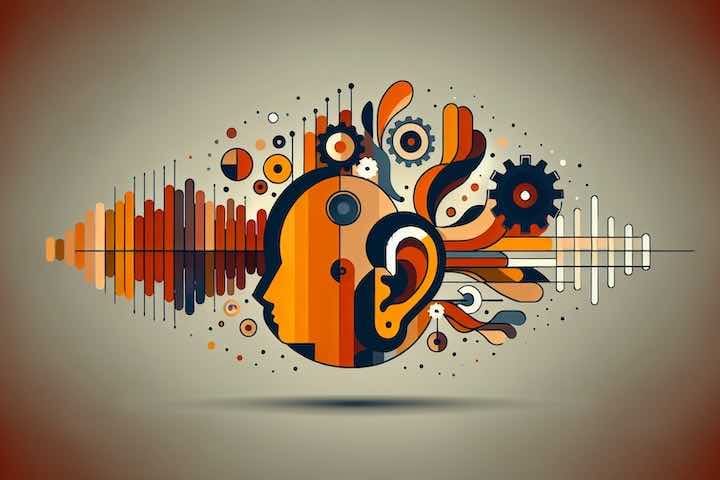Develop Good Listening Skills
This article provides an understanding of how to develop good listening skills. You can share this information with colleagues in the form of an online Communication Skills course. Part of our a range of workplace development courses.
What are good Listening skills?
The key to receiving messages effectively are good listening skills. Without good listening skills 2-way communication is not possible. But how do you develop good listening skills?
Listening is a combination of hearing what another person says and psychological involvement with the person who is talking. So, listening requires more than hearing words.
If you wish your staff to know how to develop their listening skills you could email them our communication skills course. This is a very important skills for everyone with a customer facing role.
Developing good listening skills starts with the right mindset. You must have a desire to understand another human being, an attitude of respect and acceptance, and a willingness to open one’s mind to try and see things from another’s point of view.
Good listening requires a high level of concentration and energy. It demands that we set aside our own thoughts and agendas, put ourselves in another’s shoes and try to see the world through that person’s eyes.
True listening requires that we suspend judgment, evaluation, and approval in an attempt to understand another is frame of reference, emotions, and attitudes. Listening to understand is, indeed, a difficult task!
Often, people worry that if they listen attentively and patiently to a person who is saying something they disagree with, they are inadvertently sending a message of agreement.
When we listen effectively we gain information that is valuable to understanding the problem as the other person sees it. We gain a greater understanding of the other person’s perception. After all, the truth is subjective and a matter of perception.
When we have a deeper understanding of another’s perception, whether we agree with it or not, we hold the key to understanding that person’s motivation, attitude, and behaviour. We have a deeper understanding of the problem and the potential paths for reaching agreement.

Reminder, developing good listening skills requires:
1. Concentration and energy
2. A psychological connection with the speaker
3. A desire and willingness to try and see things from another’s perspective
4. Suspend judgment and evaluation
There are some other requirements for developing good listening skills
Giving Full Physical Attention To The Speaker
The term ‘Effective attending’ refers to the perfect listening mindset. It means a careful balance of alertness and relaxation and includes appropriate body movement, eye contact, and ‘posture of involvement’.
Effective attending says to the speaker, ‘What you are saying is very important. I am totally present and intent on understanding you’.
When developing your listening skills consider adopting some of the following postures:
- Leaning gently towards the speaker;
- Facing the other person squarely;
- Maintaining an open posture with arms and legs uncrossed;
- Maintaining an appropriate distance between us and the speaker;
- Moving our bodies in response to the speaker, i.e., appropriate head nodding, facial expressions
Being Aware of the Speakers Nonverbal Messages
When we pay attention to a speaker’s body language we gain insight into how that person is feeling as well as the intensity of the feeling.
Through careful attention to body language and paraverbal messages, we are able to develop hunches about what the speaker (or listener) is communicating. We can then, through our reflective listening skills, check the accuracy of those hunches by expressing in our own words, our impression of what is being communicated.

Paying Attention to the Words and Feelings
In order to understand the total meaning of a message, we must be able to gain understanding about both the feeling and the content of the message.
We are often more comfortable dealing with the content rather than the feelings (i.e., the relationship), particularly when the feelings are intense. Our tendency is to try and ignore the emotional aspect of the message/conflict and move directly to the substance of the issues.
This can lead to an escalation of intense emotions. It may be necessary to deal directly with the relationship problem by openly acknowledging and naming the feelings and having an honest discussion about them prior to moving into the substantive issues.
If we leave the emotional aspect unaddressed, we risk missing important information about the problem as well as derailing the communication process
Reflective Listening Skills
Reflective listening or responding is the process of restating, in our words, the feeling and/or content that is being expressed and is part of the verbal component of sending and receiving messages.
By reflecting back to the speaker what we believe we understand, we validate that person by giving them the experience of being heard and acknowledged.
We also provide an opportunity for the speaker to give us feedback about the accuracy of our perceptions, thereby increasing the effectiveness of our overall communication.
Paraphrasing – This is a concise statement of the content of the speaker’s message. A paraphrase should be brief, succinct, and focus on the facts or ideas of the message rather than the feeling.
The paraphrase should be in the listener’s own words rather than ‘parroting back’, using the speaker’s words.
Reflecting Feeling – The listener concentrates on the feeling words and asks herself, ‘How would I be feeling if I was having that experience?’ She then restates or paraphrases the feeling of what she has heard in a manner that conveys understanding.
Summarising – The listener pulls together the main ideas and feelings of the speaker to show understanding. This skill is used after a considerable amount of information sharing has gone on and shows that the listener grasps the total meaning of the message. It also helps the speaker gain an integrated picture of what she has been saying.”

Verbal Listening Skills
Developing your listening skills means also developing your questioning.
Questioning the listener particularly with open ended questions (questions which can’t be answered with a ‘yes’ or a ‘no’) will help you get more information and clarification.
This in turn helps the speaker focus on their topic, encourages them to talk further, and provides the speaker the opportunity to give feedback
Article Summary – Developing good listening skills
In summary the question ‘How to develop good listening skills?’ has no simple answer. You need first energy, concentration and then to practice the tips above.








